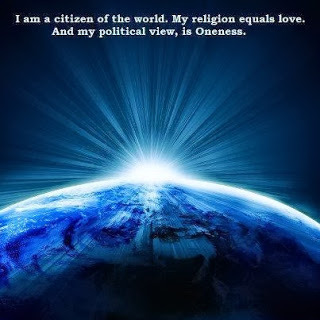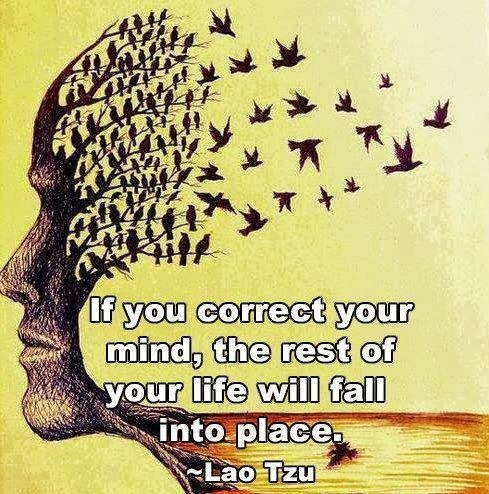David Teachout's Blog, page 22
October 27, 2013
Yes You're In A Relationship

From gay marriage to the so-called sanctity of traditional marriage. From monogamy to monogamish to polyamory. From “seeing someone” to “dating” to “going steady” to “just friends.” We have labels upon labels to describe the various relational types that we exhibit in our behavior, all connected in time with social standards and none of them capable of being anything more than approximations of reality. Stop for a moment and ask whether every iteration of any of the terms used so far have any specific standards in practice? Is every marriage the same? Is every date the same situation? The quick answer is no and most will find that to be a good thing. The only transcendent point belonging to every relationship label is that it involves a person or people.
Labels are great things. They bring coherence to our conversation, making sure more than one person is talking about the same thing. They provide legal structure for the cacophonous social reality of millions and billions of people living together on one planet. However, both of those qualities are artificial in their reach, they only work in so far as the very particular context allows. Conversations and debates go awry every moment of every day because while two people can use the same term they often are not using it in precisely the same way. Legal tomes weighing metric tons are written isolating just what any single term means given particular circumstances and variables.
This is likely not a new revelation, that labels are limited in their power. What is curious is the extent to which people so vehemently and at times violently defend the usage of them. We acknowledge their limitations and yet can’t wait to take on a new one or defend with our last breath whether a particular label applies to any one of us. At face-value this seeming hypocrisy is ridiculous and at times it most certainly is, but what labels fail to do in particular instances they succeed in the creation of our projected images.
In telling a story, an author has control over the direction and form the characters travel down and embody. The same applies to our own narratives, at least so we keep telling ourselves. Reality is a lot less constrained than a novel, a point that likely just buried the needle on the meter of obviousness. In our projected narratives though we often blindly accept that we are creating a reality, forgetting that in a reality that is so very much more than any of us, our narratives are not so much creative enterprises but attempts to limit focus. This limitation is often directed at those around us, hoping they’ll only see what we tell them, but it can just as easily be applied internally, helping us to see only what is beneficial to the continuation of the story we are writing in our minds.
Enter labels. More specifically, enter labels as they belong to human connections. Perhaps better they should be called linkages, points of contact between the singular reality in which we all dwell and the limiting narrative we are telling each other and ourselves. We like to say when viewing something distasteful that we don’t have any connection to it, a method of distancing oneself from contemplation of impotency or disregard. When wanting to hide from our feelings or impulses we’ll artificially limit the extent to which a label applies, so that being “in a relationship” becomes a caricature of what we ourselves have ever engaged in.
The broader reality in which we all dwell is one of constant and ubiquitous relational connections. In even the quickest and most superficial of contemplations there exists a relationship. The homeless person on the street we interact with by not interacting with has a relationship with us. The person or people at work, the commuters on the train, the friends we see at the bar or connect with via text all have relationships with us. This is not to diminish the term “relationship” to one of meaninglessness by broadening it to include everything. Rather, the attempt here is to call attention to how we seek to control that which isn’t controllable. I nor anyone else can stop creating relationships with each and every person with whom we interact, whether that be in physical proximity or who we see on glowing screens of our computers, televisions, phones and tablets.
When using labels, remember they serve the purpose of attempting to limit reality rather than create a new one. This can help us see how our narratives are hiding from others and ourselves aspects of reality we are finding it difficult to deal with or do not fit the comfort of the social place we are in. None of us can escape the relational reality of a universe always and forever bound together in a web of interconnected relationships. The joy of consciously living in such a reality is found in following the infinite variety of possible connections open to us each and every moment of our lives.
© David Teachout
Published on October 27, 2013 08:34
October 9, 2013
Naked Sexuality

To be naked is to invite, in a society devoted to seeing people as products, an appraisal of one's worth. Weighted, scrutinized, judged, and projected upon, nakedness practically begs for the destruction rather than the dissolution of the ego. Notice the difference. The latter involves a spreading out, an amorphous interrelationality with the surrounding context. The former results in pieces of burning detritus, where each can be looked at as once being a part of something else. Dissolution is expansive. Destruction is brokenness.
Why ever would someone then get naked in the public eye? Why ever would someone invite such potential for soul-shattering criticism? I am reminded here of how various minorities have taken on terms previously applied negatively, like the n-word, or have taken on other terms previously assigned only to a situation they were not thought to possess, like "gay," and brought it into the fold of their own identity consciousness. This allows for the space to then find personal empowerment in what was once thought to be a lack.
So it is with nakedness, particularly when done by women. There is much often declared concerning a woman when she wears clothing considered to be "suggestive" or "inappropriate," though clearly what is being referred to or deemed wrong lies completely in the eye of the person making the declaration. The attempt at shaming, of drawing attention purely to the absence of clothing or a particular act, is ultimately a behavior designed to (as noted above) limit or destroy rather than expand or promote understanding.
For a woman to be naked or even approximately so is to draw attention to this base myopathy and in an attempt to draw strength from a socially perceived lack, exult in the very thing that is being told to them should invite criticism and disgust. The exploitation claim thrown around misses the point, for exploitation is not truly, any more than the declarations of shame and judgment, about the woman but about those who cannot see anything but bared flesh. It is an indication of the public's lack of introspection rather than an indictment of the actions of the performer or lay-person. Nakedness is the blunt declaration of sexual power, socially explosive only because there is so much fear and concern about a confident woman clad only in her skin.
Introspectively noting and healing this narrow and controlling vision, leads not only to a greater appreciation for what is standing before but an expansive understanding of one's own sexuality and the empowerment that comes from owning one's nature rather than seeking to limit it. To be naked is not simply a physical act but a psychological one, a laying out of one's presence. Clad only in the armor of personal acceptance, being naked is a baring of self requiring a deep courage.
Rather than projecting insecurity and hiding through judgment, the opportunity can instead be seen as an invitation to bare one's own self in return. Sharing within a space of openness and honesty is more than simply taking off clothes, but sometimes when confronted with such large walls of denial, a blunt instrument is precisely what is needed to help remind us that limitations are often self-created.
© David Teachout
Published on October 09, 2013 11:02
October 2, 2013
A Swiftly Tilting Relational Life

When the concept of "no-self" first came across my ocular nerves I was immediately struck by the absurdity of it, the self that has rather self-servingly given itself the name "I" rising up in indignation. Certainly there could be no truth to this notion, the seeming denial of a fundamental aspect of existence. Further study fleshed out the notion to remove from it the idea of absence, replacing it with transience. That struck a nerve.
Through so many changes in life, biological and ideological, a soft chuckle was often what greeted continued realizations that I was no longer the person I used to be. From baby to child to shame-filled adolescent to determined adult. From fundamentalist to atheist to spiritual naturalist. These transitions can be strung out in a rather beautiful and intriguing narrative, but upon closer examination I cannot perceive what, simply looking at "myself," is there to hold any of it together. Beyond a desire to do so, the experiences at the time did not consciously hold the seeds for the change to come nor in looking back could I conceive of fitting "myself" back into those molds.
Where'd the missing information come from? Where in the maelstrom of life emerged the variables to promote change? As Stephen Batchelor in Buddhism Without Beliefs notes: "All of life is in ceaseless mutation: emerging, modifying, disappearing. The relative constancy of still, contoured attention is simply a steady adjustment to the flux of what is observed. Nothing can be relied upon for security." The contoured part caught me, the provision of a depth and wave to the power of attention. What this is seems the answer to the other questions as well.
The contours of life, the missing information or variables that ebb and flow in our consciousness, the pieces that we are so often blind to in our continual focus on the ego's creation of a personal narrative, are relationships. From the awkward to the profound, from sexy to platonic, friend to lover, and sometimes all of those in the same person through time, relationships are the gossamer threads binding our narratives together even as we attempt to give greater weight to the "I" of ourselves.
Coming full circle then to transience, applying it not simply to the "I" but to relationships as well, there is nothing to be attached to. This is what Batchelor means by a lack of security. The loss of this security attachment is less an absence though and more a recognition of the ubiquity of change, that foundational feature of life. When looking at relationships this way, as transient and also the prehensile threads binding us all together in the "me that is we" (thank you Daniel Siegel), we flow in and out of relational forms like we do in the evolution of our narrative lives.
The stagnant relational life is one of loneliness, of rigidity and the worship of form. While there are qualities and principles to apply to each and every relationship, I am no more the exact same form with anybody I connect with than I am in every job I've held or educational class that I've taken. This can be disconcerting, but ride out the anxiety with me for a moment.
The oft-stated concern heard in so many relationships is "you're so different with x person." This question is indeed troubling, if in fact we are stagnant people capable of manifesting our emotional states in only one way or of having only one set of behaviors that we rigidly apply to any and all situations. When looked at from the notion of transience we can see how each and every relationship brings with it new ways of being and of relating, provides the threads to pull out new desires and behaviors. Indeed, when applied even to a single relationship, this notion of transience can give greater freedom to expression, as either individual is no longer tied to relating in only one way.
Changes come and pass by, leaving us with new information to integrate, new experiences to process. The threads of our relationships tug and pull, release and lie slack, but in no way do they ever go away. They are the means by which change flows, the paths by which energy manifests in varying behavior, and the bindings that help us create our stories. Far from needing to be stuck to one form, we are in fact awash in a sea of possibility. We need only reach out to those around us, friend and stranger alike, to find a broader awareness of what is already potential.
© David Teachout
Published on October 02, 2013 10:19
September 12, 2013
Not One Is Broken, No Not One

Out of a system of separation there is a miasmic notion that "all fall short" or as one myth declares "all fall short of the glory of god." This idea, stripped of its religious history, has so saturated modern culture that it has become an indelible aspect of a self-image. No where is this pernicious idea more prevalent than in the idea of any single person being "broken" or "incomplete."
Even the most innocuous of comments or ridiculous of social models proffer this mentality. Describing someone as "fragile" invokes a porcelain vase or priceless artifact, to be handled with care. Portraying women as lost without a man in their life is reminiscent of the 1980's notion of a "completed Jew," as if the inclusion of a male deity or male anyone is needed for wholeness. In every declaration that someone "can't handle the truth" we posit a notion that not only does the person lack some needed quality, but that we see that absence and then treat them as somehow less, to be coddled rather than accepted.
I have, as I believe so many males do in stereotypic fashion, a predilection towards fixing things, whether that be a mechanism or a relationship or a perceived problem. Rushing in with ready-made answers, poorly informed opinions or just the righteous indignation of declaring myself having been wronged, the notion of offering a "fix" blazes across my consciousness like Hermes delivering a message.
Whether I in fact have an answer that could be conceived as legitimate or even helpful is beside the point, this notion still erupts out of viewing the other as in need of patching up, of replacement parts or a new mind that I bring to them. If I but step back a bit I will notice though that not only is any potential "solution" not merely arising from singular me but by acting as such I have forgotten to see the person or situation as is, set as I am on projecting myself.
Nothing here is to be construed as declaring struggle doesn't exist in life or that any of us are not at times buffeted by events for which we seek a haven. Rather than viewing such as a result of our fragility or incomplete nature however, I want to change the metaphor to holding our partner(s) or our friend(s) in all their parts-as-whole. As Daniel Siegel notes, integration is the construction of disparate parts into a new coherent narrative. Knowing such a space for another, without offering a solution, indicates the lie of a "fallen nature" and rests instead within a me-and-us creative enterprise.
When I, or any of us, approach someone who is suffering, seeing them as whole and complete, strong and resilient, but at the moment blind to this, a person can be seen devoid of our own hopeful projections. Viewing each other as wholes, as complete entities, encourages thoughtful contemplation rather than emotive melodrama. We do not get stuck attempting to fill the gaps or lack, instead noting how much more we are together. Any solutions then arise through the communal-creation (communication) of an expansive interpersonal connection.
© David Teachout
_________
See also: Being Completed By Romance and The Principle of Communication as Communal-Creation
Published on September 12, 2013 20:52
August 20, 2013
Atheist No Longer, A Label Without A Cause

The need for community sends us in all manner of directions. We paint ourselves like warriors of old and shout till our lungs burst. Our clothes are emblazoned with all manner of symbols and phrases, pictures of mascots and letters of importance. We'll bluster with rage over political affiliation and become flabbergasted when another doesn't fit the preconception of what membership to that group "should" entail. Communities and the labels that come with them offer a means of organizing the disparate narratives of our lives. In the end, they help promote the greatest self-deception ever perpetrated, that of the great "I" at the center of each of our lives.
As anybody who's read my bio knows or who has been reading for a while has seen, I have sheltered under the umbrella of "atheism" for years now. Since that November of 2001 when I declared my lack of belief I have gone through a spiraling dance with spirituality. First as an abject militant against anything of the sort, the anger was undoubtedly a projection of feeling cheated and lied to, from others and mostly from myself. Psychological studies helped lessen that issue, noting the prevailing need to create meaning and our brain's inevitable formation of mental structures to organize experience. Time, further studies and an appreciation for the deeply similar experiences all practitioners of religion have brought me to a place where I could begin celebrating the human part of spirituality. From there it was only a quick step to realizing that spirituality need not be indelibly linked with supernaturalism.
It is the latter, supernaturalism, that I finally identified as the problem at hand. Epistemically fraudulent, the term has no inherent definition, no positive promotion of anything understandable. Supernaturalism is the repository of mystery, not in the sense of ignorance, but belief in the certainty of something because of that ignorance. The difference here is between someone having a transcendent experience and letting it change their life and another having something similar, then embarking on a quest to get everyone else to believe what they do. The worship of the personal felt experience, built as it is on a naive individualism, gives to supernaturalism its fundamentalist bent and provides the danger for social cohesion.
Essentially atheism is not a belief in something, it is the negation of a belief. Where the theist declares their god(s) exist, the atheist has a blank spot, a deity simply doesn't hold any sway in the formation of a worldview. This means by inference that atheism itself is not a worldview, a point unfortunately missed completely by the talking heads and apologists who wax ineloquently about it.
While I was able for a time to hold myself in that space of mere negation, I began to find myself at odds with the way such was being promoted. As in any ideological position, the social practice side of it provides a nuance that is often unhelpful. Here was a prime example. Atheists, undoubtedly in reaction to the vociferousness with which many theists hold their position, have boxed themselves into a space where not only is supernaturalism denied but anything even hinting at a spiritual side of humanity is done away with. Often the attempt is made to reduce this most emotionally salient of experiences to mere neurological firings and attempting to show how belief in such indicates some diminished capacity in the person.
With a great deal of head-shaking, I found that atheism was throwing the baby of relationship that spirituality shows us is foundational to our humanity, out with the water of indoctrination and self-righteousness. What began for me as a recognition of the common human element in all religious ideologies had finally blossomed into a dedication to stand for, not merely against, something. I could rant all day at the atrocities and ignorance promoted through the vehicle of religious dogmatism. There are certainly times when this is a good thing to do (I may not agree with everything Richard Dawkins says but there is a time and place to have a bulldog on your side). However, destroying something doesn't move us forward, not as a community, nor as a species.
So it is that I no longer refer to myself as an atheist, not because I have been born-again, but out of devotion to a broader understanding of humanity. Where relationship is focused upon, there is no separation. Where connection is devoted to, there is no judgmental condemnation. With humanity the object of progressive growth, there is less concern over righteous certainty and more dwelling upon the pregnant potential found in every question and inquiry.
© David Teachout
Published on August 20, 2013 19:21
August 15, 2013
The Humanity Of Being Human

Living by principle, whether individually or as a nation, involves dedication. This is not done in spite of circumstances but precisely because of them. Situations are context-specific and provide space for the projection of meaning. This requires the application of principles, be they conscious or unconscious. There are times of immense emotional intensity, when behaviors that would otherwise never be considered, are pondered and perhaps even done. What those situations reveal is not the abdication of principle but the usage of others which are deeper. When faced with mere survival, one is not taking the time to consider issues of jurisprudence and equal rights.
Thankfully the vast majority of us in the United States, and in some parts of the world, are not truly faced with situations like that. Unfortunately the ability of fear to bypass our frontal lobe and therefore our reasoning capacity impresses upon situations a level of danger that is unwarranted from a more objective point of view. We scream about gun deaths and don't blink at all with driving our cars, despite the number of vehicular deaths far outweighing that from guns. This is not a discussion of policy but of noting our humanity. When our humanity is ignored, our decisions then come from a space of ignorance, for the activities of our unconscious do not stop simply because we consciously don't care to understand them.
Fear informs our decisions, from which emerges behavior that without such we would act differently. This occurs at the personal individual level, but for now the focus will be on the national stage. At the national level, the deplorable setting of Guantanamo mirrors our over-crowded prisons in the States. CEOs defrauding thousands and only receiving a fine indicates the gross disparity of justice when placed next to Bradley Manning who sought to inform the public about governmental wrong-doing and is now sent to prison for decades. Those deemed living a life of sexual depravity are now capable of being arrested on sight by Russian police and yet continued support is given for the public manifestation of international goodwill, that of the Olympics, being held there.
There is a dividing line in our national history when those in power shift from being beholden to the people to discriminating who is seen as worthy of possessing human rights. Jefferson's words of "it is self evident" that all are created equal have been for some reshaped to "it is only so when government says." Such thinking is not in line with a democracy for the people, by the people, but a disturbing shadow of feudal aristocracy.
I accept that in times of war, that most atrocious of human activities, ideas we hold most cherished will be tested by the steel of of our tanks and the powder of explosives. What I do not accept is that those ideals should be cast aside for the expediency of momentary feelings of safety or for the continued delusion of our national superiority.
In times of war, in times of moral uncertainty, the willingness to forego our most treasured of principles will determine the form we take in our concerns of national security. Will America act as the classroom bully, denying the voices of those asking to be heard, or will America accept the citizens of the world as beneficiaries of the benevolence and care that America has shown it is capable of acting upon? That benevolence has always been because America stood for human rights, of all human beings, not those we autocratically deem to be worthy.
A war was fought on our own soil to determine how the debasement of our ideals in the form of slavery would shape our future. In this "war on terror," it is not the tyranny of the suicide bomber that we fight against, but the encroachment of moral turpitude.
© David Teachout
Published on August 15, 2013 14:13
August 7, 2013
Of Timelords And Loss

In BBC's "Dr. Who" the doctor is capable of regenerating to create a new body when either injured or emotionally spent beyond repair. This process is tied to his nature as a timelord and occurs through an increasing display of light bursting forth from within. The event is laden with strong emotion, frequently associated with immense change and always spurs a great deal of speculation by viewers as to who will emerge next. It is a singular point of meaning in the story-arc of a character possessing the capacity to exhibit new qualities of personality through resurrection.
A recent loss in a local community, someone who amusingly and endearingly was given the title of timelord, has me reflecting on the process of regeneration and loss. I did not know this person intimately, but some of those deeply affected by her loss are good friends of mine. Regardless of the level of personal contact the loss of anyone, particularly one of such powerful passion, brings immediate emotional responses. Even after 18 years I can remember the moment I found out my grandmother had died or later when a woman I'd had my first teen crush on passed away due to labor complications. These experiences linger and their associated memories fuel the sense of loss we often try so hard to move past and instead find ourselves continuing to live in.
Loss and grief, like any other emotions, are shared experiences, relational points of contact between the individual narratives guiding our lives and the people who we are enmeshed with. The strength of those emotions emerges from the quality and depth of the associated relationship. Not knowing someone very well personally does not generate a great sense of loss, but once the feeling of grief felt by those who were closer is contemplated upon empathy expands our emotional reaction. This is why we do not simply move on from a loss, for we are caught up in the flow of energy and information generated by all the interactions we have with countless others.
To live fully is to constantly expand our awareness through the power of our imagination fueled by our empathic connections with others. We do this by continually engaging in social activities, opening ourselves up to the inevitable change that others inspire in our lives. We do this by active, intentional, conscious deliberation, but this is only the tip of the iceberg of our mental lives. There is so much going on below that of our conscious lives, countless variables embodied in people rising and falling in the sea of our potential being. Even a momentary analysis will indicate just how often we are surprised by what arises within us.
The life of a timelord, much like any of us, is measured by the degree of change he or she manifests in our shared reality. Perhaps rather than looking at regeneration as being required due to injury we can look at it as being the result of being filled. Like a tea-kettle or a balloon filled beyond capacity the stuff of life explodes forth in every direction remaking all that it touches.
Our lives, like the passing of a timelord, are explosions of regenerative energy. We cannot choose not to affect others, but the nature of the affect is ours to influence. Like the recent passing of a community sister, we should be so lucky to inspire the passion and love of so many.
© David Teachout
Published on August 07, 2013 13:08
July 29, 2013
Humanity's Nature Calling For The Spiritual

For a country with a legally established demarcation between Religion and State, the United States has a relationship with religion much as a person has with a 500 pound gorilla in the room. There's fear, concern, a fair amount of anxiety, curiosity as to what's going to happen and a penchant for attempting to think it doesn't exist, but always does it loom large in the imagination of individuals and society.
Researched, written about and publicly debated, the legitimacy of whether humanity has an inherent tendency towards religious thinking continues to cause head-scratching, varying degrees of biased pontification and a great deal of individual opinion-making. One of the central arguments put forth by fundamentalist Christians, made famous in its moral form by C.S. Lewis (who's personal religious structure as an Anglican would have shocked modern fundamentalists), is the ubiquity of religious concepts found in cultures. When any of those concepts can be, no matter how stretched beyond credibility, connected with the Christian Gospel story, no greater example of confirmation bias has ever been seen.
That this argument points only to a tendency within the human mind to create rationalizations for the unknown that could be classified as transcendental or spiritual doesn’t seem to phase the one making this argument. In the end, having begun with assuming the legitimacy of their particular religious narrative, ipso facto their truth must be defined as TRUTH as soon as any kind of universal spiritual mentality is even potentially indicated by a casual perusal of human cultures. I won’t argue the finer points of this argument as it’s not the issue here. In fact, I accept at face value the legitimacy of there being a spiritual tendency within the human mind, albeit one that is derived not from the existence of a supernatural realm, but from our innate neurological need to view data in patterns and apply intention.
This necessity to view data in patterns is not so much an adaptive mechanism, although it is that as well, but a requirement for any species interacting within its environment. To see the forest is to expand upon the notion of individual trees, to determine food sources is to connect varying disparate data to make an image of object x is nourishing. All is created from within the biological particulars of that species. The giraffe sees food in the trees but may miss the foliage on the ground. The dog sniffs along the ground, ignoring the potential threats from above. The cat swats at a dangling string thinking it the tail of an animal. All creatures see the world through the eyes of their existential experience, e.g. the biologically derived constructs of their particularly neural capacity.
What is not found in these and other animals is found in human beings, namely that feeling of disengagement or distance with the environment. “Human existence is different in this respect from that of all other organisms; it is in a state of constant and unavoidable disequilibrium. Man’s life cannot “be lived” by repeating the pattern of his species; he must live. Man is the only animal that can be bored, that can be discontented, that can feel evicted from paradise. Man is the only animal for whom his own existence is a problem which he has to solve and from which he cannot escape.” - Erich Fromm, Man For Himself, p. 40
This notion of being “evicted from paradise” is indeed a theme running throughout many religions, that feeling of disconnection that is directly tied to the beingness of humanity. Sartre famously noted that bravery is seeing the innate meaninglessness of the universe and, notwithstanding, continue to go forth to meet it. Only a human being would utter such a thing, as the bird never questions its meaning or purpose, the plant never ponders whether it should flower or produce fruit. Only in the human person is this separation a conscious notion driving before it all manner of insecurity and concern like a powerful Wild Hunt, inexorably in pursuit of an answer to this inner-created crisis. Humanity “is driven to overcome this inner split, tormented by a craving for ‘absoluteness,’ for another kind of harmony which can lift the curse by which he was separated from nature, from his fellow men, and from himself.” - p. 41
The craving is answered in spiritual/transcendental notions and practice. Note that, like above, I did not say supernatural. A sense of the transcendental or spiritual is in no way necessarily tied to the notion of the supernatural. Indeed, the supernatural, being as it is other than natural or even opposite of natural, makes all things spiritual null and void. The "supernatural" removes the human experience even further from any point of contact with itself, placing the focus on anything that is other, continuing the separation that began the quest in the beginning.
The sense of the transcendent can be found in any number of tenants or practices, from meditation on a mountain top to the feeling of group bonding facilitated at a sports event. The mistake that is often made, note the creation of fundamentalism that can exist in any ideology, is identifying any singular form with being the only legitimate means of gaining this sense of the transcendent. The spiritual has many mountaintops and, for that matter, many valleys. We do our nature, our existential experience, a disservice in thinking that once a truth is found that it must therefore mean it is the only truth or all of it. We search from a position of constant seeking, of a bone-deep need to see connection all around us. Imagination's beauty is its ability to find new answers every time we blink and create from the maelstrom of the potential a new vision. The clouds in the sky beckon us to create new images from within the mind's eye and we should most assuredly seek to respond.
© David Teachout
Published on July 29, 2013 19:52
July 26, 2013
An Intimate Connection: Polyamory As Sex-Positive

Sex, sex, sex, it's as if that's all anybody thinks about. Granted, lawmakers in Texas and Virginia would have us never consider it outside the holy matrimonial bonds of rigid social structure, but alas to ideological demagogues, biology smirks and keeps our minds quite amply filled with lasciviousness.
Getting definitions out of the way. Polyamory: a relational style with an intention towards and creation of multiple emotional relationships that may include a sexual connection. (If you desire a larger definition in light of particular principles please see: Principles of Polyamory Sex-Positive: an ideological stance advocating free and open sexual behavior within the bounds of mutual safety and respect.
At first glance the question of the connection between poly and sex-positive is an exclamation of "well duh!" All one has to do is look at the common media portrayal and it's quite clear that the poly desire for multiple relationships is truly all about the sex, with relationship often being defined almost entirely within that context. This isn't entirely without just cause and am reminded of my initial inquiries into what poly is. I remember agreeing with much of the ideas behind emotional intimacy and resonating with the reality of loving multiple people in line with the particular connection that each individual makes. However, when faced with going any further I would declare "yes, but why does it have to go to THAT?" That of course being sex.
Particularly in American society, intimacy tends to be synonymous with feelings of sexuality and if not actual practice at least discussion concerning the so-called pull of sexual energy is assumed must be a part of the situation. The constant articles and debates being posted concerning whether men and women can “just be friends” is an indication of this mindset. Noting the hetero-normativity here, I in no way wish to diminish the legitimate pressures with the gay and lesbian communities that may exist, but given my lack of knowledge and personal experience in those groups I do not wish to assume anything out of a place of ignorance and very much hope those more intimately acquainted will voice their opinion as to whether a similar social pressure exists or not.
Intimacy, as any person practicing polyamory knows, (just as frankly anybody who spends more than a moment considering the various levels of intimacy in relationships) is much more than sexuality and encompasses a feeling of contentment, acceptance and the intentionality of creating a connection. That connection may incorporate physicality in the actions of cuddling, hugs and touch, but none of those things are of a necessity conflated with sexuality (considerations of general “sexual energy” is for another discussion). However, considering the societal bipolarity with which sex is treated, both explicitly promoting an explicit sexuality in advertisements and cinema and yet being afraid of talking about sex with teens under the hubris of abstinence, intimacy becomes intimately linked with sex. Therefore those who are explicit in their intention of creating intimate partnerships with any number of people are going to be assumed to be engaging in sex.
That polyamory for its practitioners does not assume this is clear through discussion though ultimately not the point. In noting the connection between poly and sex-positive, we have no option here other than to acknowledge how intimacy is often conflated with sexual acts. Time and energy spent attempting to dissuade people from the assumed link seems to me to be better spent embracing the identity with sex-positive and using our lives as examples of what it means to view sex as a means of intimate practice that is respectful, open, honest and honoring of the individual. And let’s face it, poly relationships do most often involve some sort of sexual play. Denying the link seems a tad disingenuous or just silly. :)
Accepting the connection between sex-positive and poly, leads to, as noted above, an empowerment concerning our role in promoting a new social mindset. Being sex-positive is not about actually engaging in any and all forms of sexuality regardless of desire or personal sympathy, it simply, like poly in connection with relationships, has the intention of honestly pursuing interests to their fullest potential (see Joys Of The Flesh). The synonymity of poly and sex-positive is a good one, though of course one can be sex-positive and not poly. The relational context in which sexuality is expressed is not of concern in being positive towards sexuality, indeed a great many monogamous couples would likely find themselves happier if they were to explore more and shame less. That the absurd 50 Shades of Grey is flying off the shelves and soon to come to a theatre is a testament to society's barely-contained need for sexual exploration and freedom.
In our appreciation for varied people, dedication to personal authentic expression, responsible action concerning safe sex practices, holding people in their wants and needs whatever they may be and having a conversation about how they can or may not be met by any particular relationship configuration, polyamory stands for the essential aspects of a relational dynamic that allows being sex-positive to flourish. Notice that none of the elements just mentioned require multiple partners or even any emotionally intimate partners at all. These pieces are part of any sound and healthy relationship, whatever the form it may take.
Given the prevalent immediate connection between intimate relationships and sex and how polyamory is so often seen as, embracing this reality allows all involved to actively promote these qualities to those around us and in whatever means we can for society at large. Perhaps when sexuality is seen less as something to be hidden in overt or covert displays of shame and uncertainty, we will then be ready to see how intimacy is so much more than a sexual thing and embrace the many varied levels of relationships human beings can create when barriers are to be reached across rather than built higher.
© David Teachout
Published on July 26, 2013 16:48
July 22, 2013
Educational Values As Civic Duty
 The philosopher and educator John Dewey (2012), in his Democracy and Education, discusses education as “the formation of mind by setting up certain associations or connections of content by means of a subject matter presented from without. Education proceeds by instruction taken in a strictly literal sense, a building into the mind from without” (p. 69). The sense in which education is here noted encompasses both the cultural mores introjected by the individual and the instruction found within the more formal curriculum offered by educational institutions. The former is often intimately associated with particular values resulting in protestations of “culture wars,” leaving the latter in a potential void.
The philosopher and educator John Dewey (2012), in his Democracy and Education, discusses education as “the formation of mind by setting up certain associations or connections of content by means of a subject matter presented from without. Education proceeds by instruction taken in a strictly literal sense, a building into the mind from without” (p. 69). The sense in which education is here noted encompasses both the cultural mores introjected by the individual and the instruction found within the more formal curriculum offered by educational institutions. The former is often intimately associated with particular values resulting in protestations of “culture wars,” leaving the latter in a potential void.Education is a democratic principle undergirding the public need to be both informed and capable of rational inquiry, the building blocks of a government by the people for the people. A populace incapable of rational inquiry is as Paul notes in his letter to the Ephesians "tossed to and fro, and carried about with every wind of doctrine, but he sleight of men and cunning craftiness…" (Eph. 4:14). Considering education then as being void of judgment or valuation seems unhelpful and needlessly vague, resulting in an ideological vacuum to be filled by any demagogue with a microphone. With this in mind, a good educational system begins with a core set of values that inform the identification of particular issues and concerns which a plan is then set up to address.
The first value is that of informed living, originally put forward by Socrates in the dictum “know thyself.” Essentially a question or declaration of inquiry towards understanding one’s relation to and within the world within which is lived, informed living is placed in juxtaposition to a world philosophy that would first have us decide what we do, physical action circumventing imaginative construction. The child who wants to be an astronaut first had to look at the stars and imagine being among them, she/he was not given a space shuttle and told to fly (however much I'm sure many children would likely find that absolutely amazing).
This issue of informed living is particularly important as it relates to the concerns of students and the communities in which they live. In a country where children are given smart-phones almost as soon as they learn to walk, information flow is constant, enormous and complex. Navigating the intersecting relationships of family, society, school and friends is not something that can be addressed by #Google Maps. Rather, the person comes to these interstitial points and from out of the unconscious rubrics taken in and created from the many and varied social influences, acts accordingly. Informed living helps create a gap between information and action, the difference between mere thinking and knowledge as noted in "To Think Is Not Always To Know." In addition, it provides a means of identifying healthier behaviors which are an outgrowth of values and judgments that have been deliberated upon.
Deliberation is a natural and inevitable outcome from informed living, bound within conscious decision-making rather than puerile responses. Without going into the ethics at this time, the concerns of students and communities is principally that of future-setting, a determination of a set of goals and achievements that will be reached based on a culturally created timeframe. To be a productive member of society is not simply to be moving, as if mere motion sets the standard of value. Rather, productive entails active engagement, which requires deliberated upon intention or informed living. The difference here is between the person who waits for something to happen to them and the person who seeks out the means to manifest what awaits in the imaginative domain of their social minds. The difference here is between the homogenization of the individual to that of the gang resulting in social deviancy and the person who is actively creating relationships with peers and those older leading to the building of a more integrated and interrelated community. As noted in "Wheels Within Wheels," the cognitive creations of each individual are the amalgamation of their total experiences, to know them is to know yourself better because none of us are outside of a community existence.
This latter issue, that of an integrated and interrelated community, is the primary concern to be identified by any educational system looking to work within the value of an informed democratic society. The practical implementation of it is through the creation of working relationships not only with students but with their families, the communities in which they live and the current educational structure already in place. These relationships encourage self-reflection by the students through education and a mindful awareness at all levels of each role in the facilitation of educational goals. This is fundamentally based on an appreciation for the decision-making process that we all as human beings are beholden to, a context-based apparatus full of unconscious musings for which we struggle to bring to mind and a co-creating social structure we have with each and every person we come into contact with, as noted in "Edges Not Core" and "Dependence Is Not Loss Of Freedom".
The implementation of these practices requires an identification of those with the passion to bring change and growth, a consideration of potential resistance and the protocols of addressing such concerns that arise. This will not happen when we continue to be more concerned with that which separates us than that which we share. This will not occur as we continue to be concerned more with the antics of pop stars than with the dehumanizing message of giving corporations equal rights to individuals and a political system bent more towards ideological absolutism than discourse.
Informed living is an educational value, but when faced with the dehumanizing element as noted above, it becomes a civil value as well. As Dewey noted: "For we live not in a settled and finished world, but in one which is going on, and where our main task is prospective, and where retrospect -- and all knowledge as distinct from thought is retrospect -- is of value in the solidity, security, and fertility it affords our dealings with the future." (p. 151) Our future is not nor should be at the mercy of those organizations or systems that see people as traded commodities. In each and every one of us is the present potential for an immediate manifested future that encourages informed and deliberated upon living.
Published on July 22, 2013 12:47



